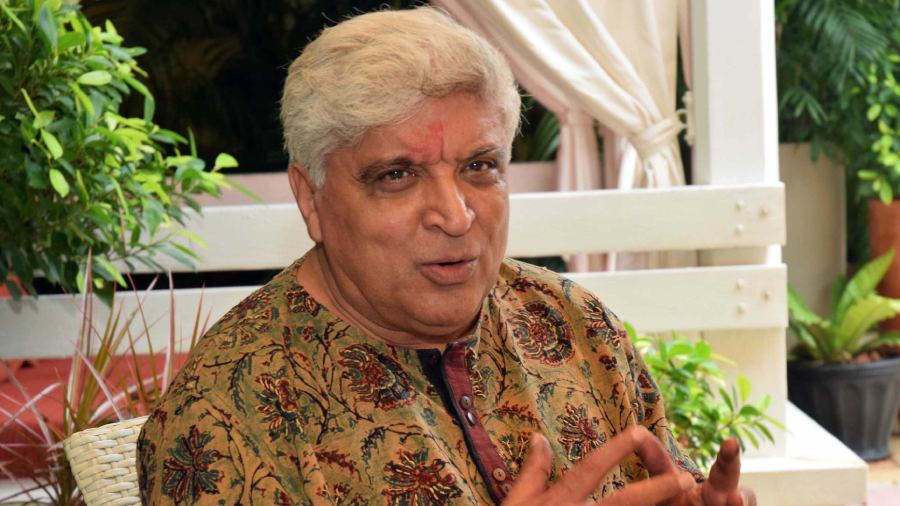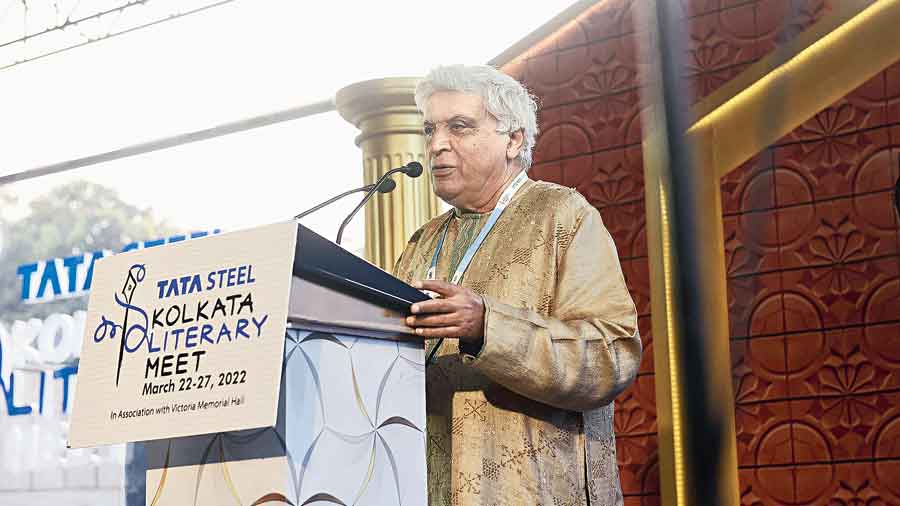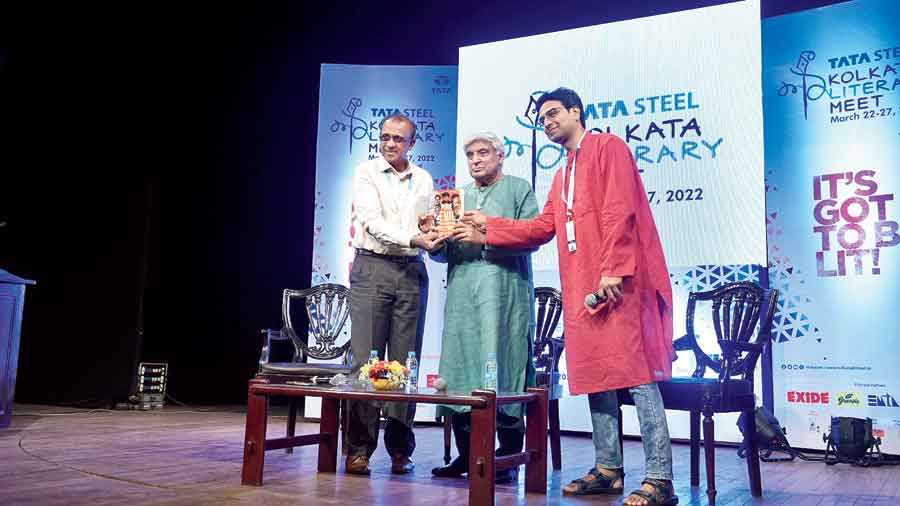Some men are born to live, some simply exist, many challenge the ordinary, but few are those who make the most out of the simplest joys of life and live it to the fullest.
Javed Akhtar would be someone who would be heading the latter list, if one was ever made!
We had the privilege of spending an evening with him in Kolkata on the sidelines of the Tata Steel Kolkata Literary Meet in association with The Telegraph this week, and what transpired during the one hour of an intellectually intoxicating conversation over the dinner table left all of us spellbound by his humility. But, more importantly, it left us in awe of the way in which he would connect the multiple dots of his life journey and convert it into powerful narratives with a purpose.
By the way, all of us were meeting Javed saab for the first time with no real plans to have a sit-down dinner with him; he put us at ease with his down-to-earth manners, a trait which one needs to learn.
“The failures of successful people become romantic going forward”
The context of this would need to be read in sync with many movies/biopics which are currently being made to entertain and mostly inspire. An amazing anecdote which Javed saab narrated with a twinkle in his eye was when in 1970 (he was still struggling to make ends meet in Mumbai then) he had to travel from Bandra to Dadar (Mumbaikars would know the challenges of local travel!) with 75paise in his pocket and nothing else. Travelling by the local train from Bandra, when Javed saab reached the producer’s office in Dadar, where he was to collect Rs 1,000 for his scriptwriting, he found the office locked. Alas, all he had in his pocket was a princely sum of 40paise only!
He had two options, with that money he could buy a local train ticket back home or eat a roadside snack to fill his growling tummy which was kept empty the whole morning in anticipation of a sumptuous meal! He recalls, standing by the side of the Kohinoor Mills in Dadar and taking the significant decision of buying chana (colloquial for groundnuts) from a roadside vendor and commencing walking back to Bandra from Dadar. He then made a vow, which sounds majestic in Hindi “Ek din hum issi Kohinoor Mills ke samne, hamara khud ka car mein drive karke nikelenge” (loosely translated, it means that one day he would drive by the Kohinoor Mills in his own car). An audacious thought for a Bombay-struggler then indeed.
The story didn’t end here. Around 40 years later, when Javed saab was in his chauffeur-driven car (by then he had been there and done that) and his daughter Zoya by his side, he was crossing the same spot near the Kohinoor Mills and was narrating the same story passionately of his struggling days to Zoya; she looked back to him and in her own unique style with another twinkle in her eye responded “Dad, that must have been a huge amount of chana that you got then, eh ?” The response got Javed saab stumped and for once, he had no words.
On Hindi dialects and how various parts of the country use and do not use certain phrases
Have you ever wondered, he asks, why did the word “Balma” (it means beloved or lover in Hindi) disappear from the modern-day world? The explanation by Javed saab was incisive and pragmatic too. Maybe three-four decades ago, people who lived or migrated to cities had their connections with their villages/hometowns through the umbilical cord of the relatives who would keep visiting them from their native villages and staying on for some time or vice versa. Till such time, the local village dialects still percolated in the lives of the city dwellers through this connection. However, things started to change in the past couple of decades, when the umbilical cord of the relatives coming and staying on in the towns/cities began to get severed and the new generation born in the cities no longer had the connect with their grassroot villages, the subtle local dialects and words started to fade away from people’s memories.
“Balma” was quietly forgotten in the transition of the decades and for all you readers born in the 50s, 60s or 70s, I am sure that the movie Chori Chori, starring Nargis and immortalised by the magical voice of Lata Mangeshkar where Nargis sings to the melancholic tune of Rasik balma hai dil kyon lagaya would have been one of your favourites. Have a listen, the song is pure magic!
The topic then quickly changes to the quirky quotes used in our various native hinterlands and in cities too, with a smattering of English thrown in. How about the phrase “Aapne aap ko Colgate samajhta hai kya?” That was a first for me! The brand managers of Colgate will be delighted to hear that it equated Colgate to the topmost quality and hence read the phrase again now to capture the essence of the same!
Meri baat ko aap otherwise le liye; mera bad luck hi kharaab hai; ye bahut hi my dear hain; aapne aap ko bahut shining kar raha hai... amongst many, which were discussed around the table; he regaled us in short bursts with a wonderful anecdote for each phrase.
Javed saab created a lasting impression in the brief outing, a tryst with a living legend that I will fondly remember forever. To end with his own quote, “Javed saab… aap hamare parivaar aur Kolkata ke bahut fond of hain”.
The author works with Tata Steel in Kolkata and is also the president of Calcutta Management Association


